Close your eyes and imagine yourself in the Italian countryside. You’re sipping a crisp glass of wine as a breeze caresses your cheek. A plate of homemade tortellini is waiting in front of you. It’s a picture-perfect holiday. But while you’re delighting in every bite and sip, do you ever stop and ask: Where did this come from? How was it grown? These are the questions biodynamic farming encourages us to ask and answer. Through a holistic and regenerative approach, biodynamic farming in Italy is not only reshaping how food and wine are produced, but also how they are experienced. It’s a movement of sustainability, community, and balance with nature.
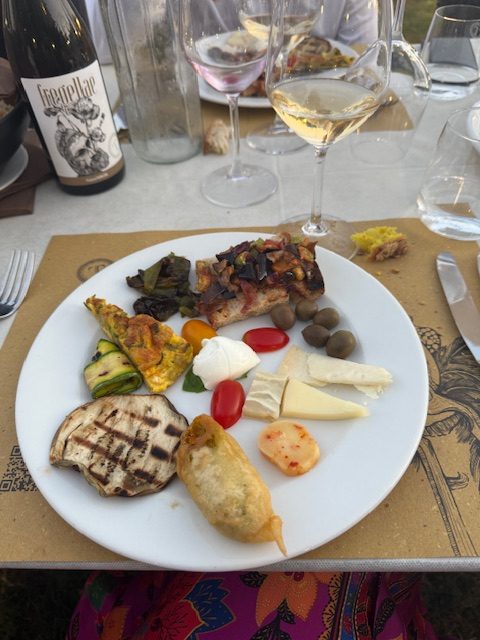
I spent two immersive days with Demeter Italia, the country’s leading certification body for biodynamic agriculture, to understand how this philosophy translates into real-world farming and hospitality. From a press conference in Rome to hands-on visits at two very different farms, I witnessed how biodynamics is transforming not just what we grow, but how we connect – with food, with land, and with each other.
We sampled natural wines, savored seasonal recipes made with ingredients grown and raised on the farms themselves, and met the farmers leading this movement. It became clear to me that biodynamics is more than just a label. It’s a lifestyle rooted deep in sustainability and shaped by intention.
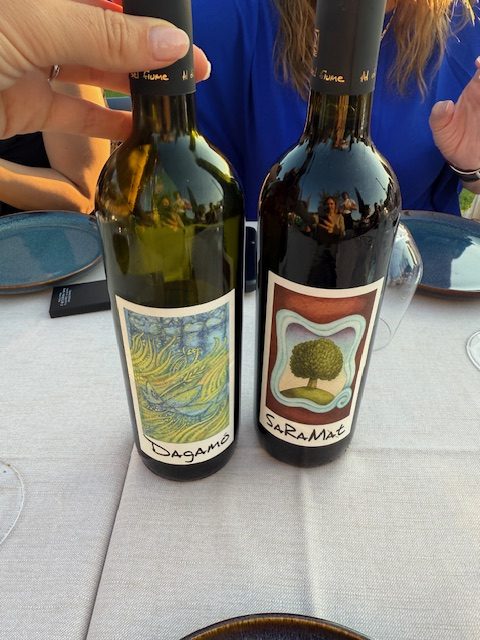
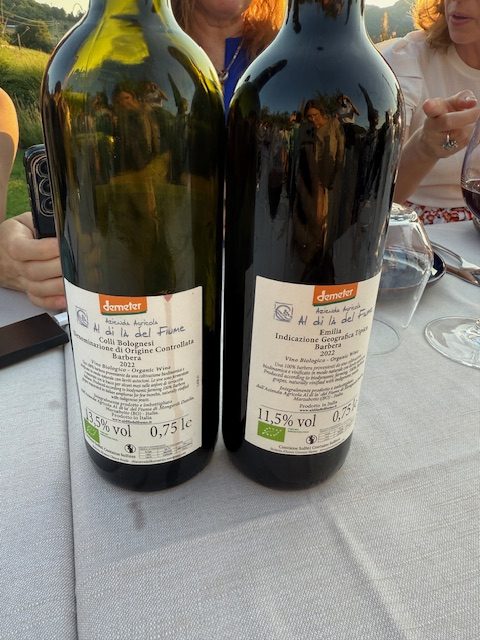
The Mission of Biodynamic Farming in Italy
The experience kicked off at the Foreign Press Association in Rome, where Giovanni Buccheri, Director of Demeter Italia, introduced a new initiative designed to bring biodynamics to travelers: a dedicated website for biodynamic agritourism (agriturismi.demeter.it), where visitors can discover and book stays at certified farms across Italy. From wine tastings and olive harvests to horseback riding and artistic residencies, the offerings are as diverse as the regions they represent.
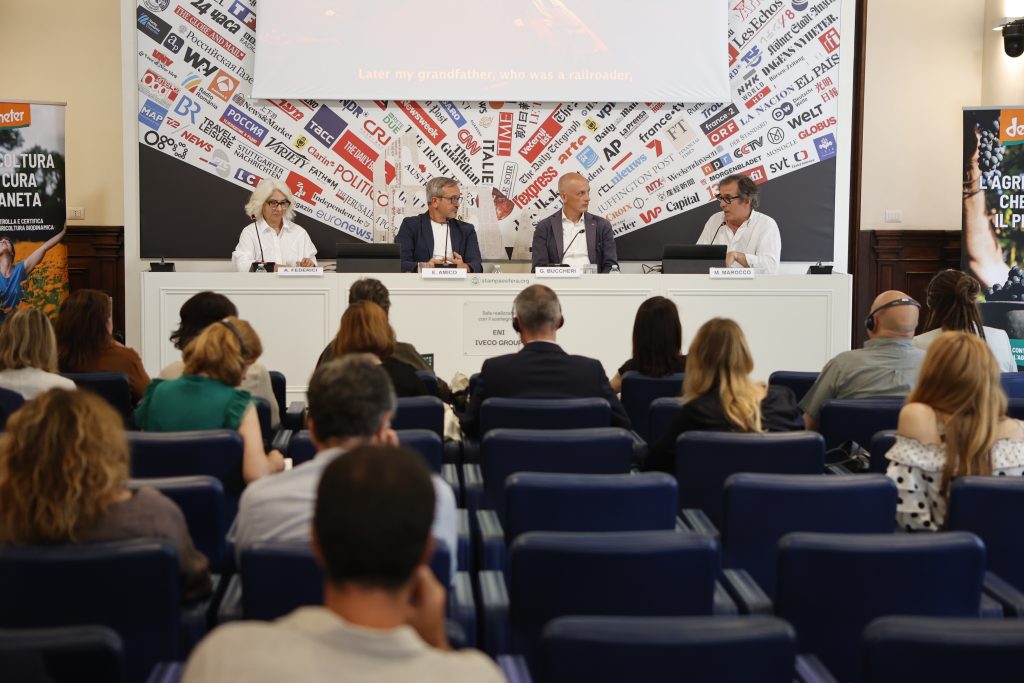
The mission? To bring greater awareness to biodynamic farming in Italy, where the Demeter brand is ironically less recognized than it is abroad. While Italy exports over 80% of its Demeter-certified products (such as wine, olive oil, vegetables, and fruits), this new movement flips the model. Instead of sending the products around the world, let invite the world to come to the farms.
As Buccheri says, “Tourists can be ambassadors.” He hopes individuals can help expand Demeter Italia’s message and values globally by experiencing biodynamic farming in Italy firsthand.
Touring the Farms
The highlight of the trip was visiting two certified biodynamic farms: Palazzo Tronconi, a boutique winery near Rome, and Al di Là del Fiume, a family-run agriturismo just outside Bologna. While each farm had its own character, both shared a profound commitment to working with nature.
So what does biodynamic farming and wine-making really mean?
It means treating the farm as a self-contained, living organism: the soil, crops, animals, and people are all interconnected. No synthetic pesticides, no chemical fertilizers. Instead, farmers use natural preparations like composts enriched with herbs or plant-based treatments. And the result? Food and wine that feels deeply rooted (both literally and philosophically) in the land it comes from.
At Palazzo Tronconi, founder Marco Marrocco shared his passion for reviving native grape varieties difficult to find outside of the region. He produces around 40,000 bottles a year. The winery is part laboratory, part love letter of Marco’s commitment and passion for biodynamic wine-making. We rounded out the visit by enjoying dinner at a communal table in the vineyard. Thanks to this on-site osteria, we tasted the wines alongside local dishes.
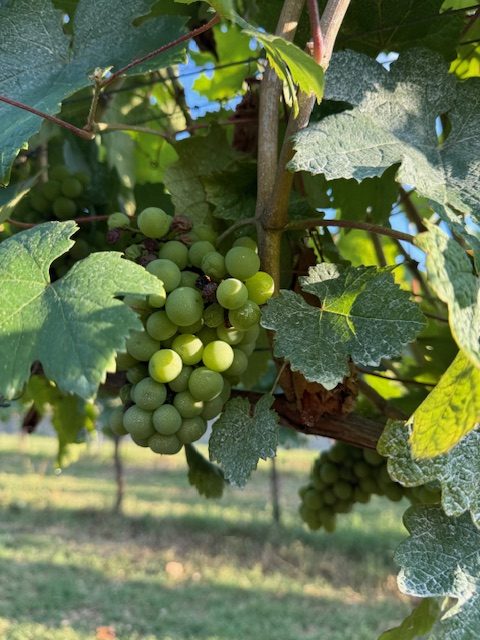
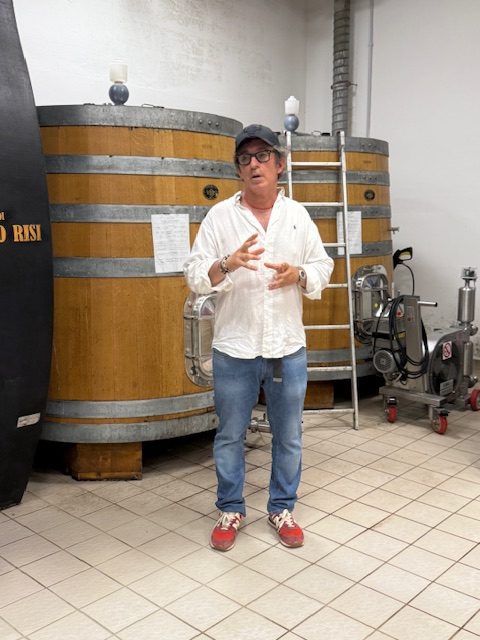
At Al di Là del Fiume, the focus is on biodiversity. Animals meander the property, vegetable gardens are plentiful, and common spaces create a welcomed sense of community. In fact, here community and sustainability aren’t buzzwords – they are put into daily practice from soil regeneration to hospitality. While you won’t find Wifi during your overnight stay, you will find a community eager to feed and welcome you.
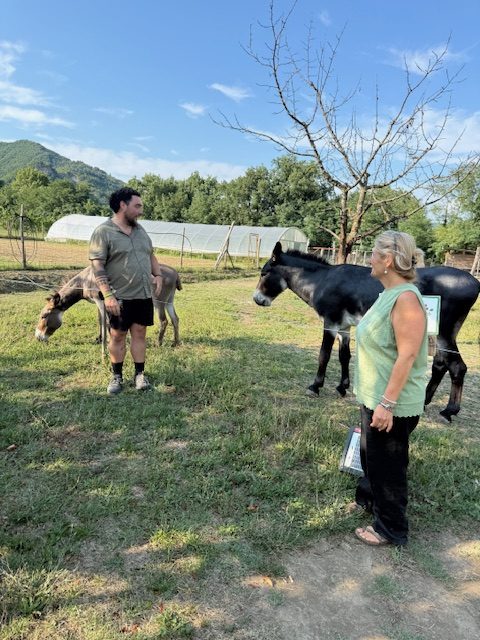
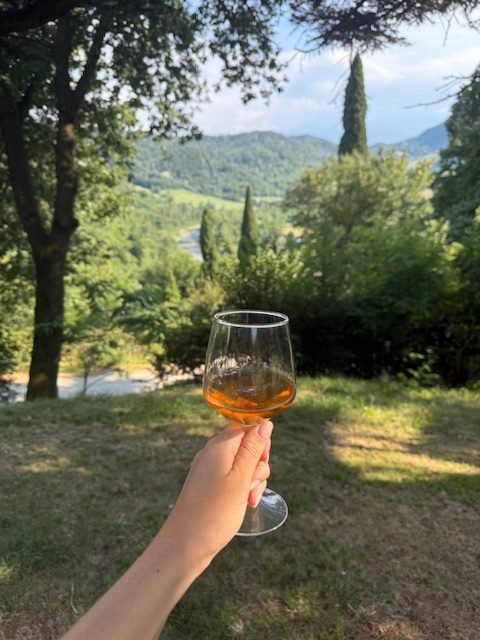
Why Biodynamic Farming Matters
Beyond its technical principles, biodynamic farming in Italy is a philosophy. It asks us to be stewards of the earth rather than consumers of it. It reminds us that food is not just fuel, but story, culture, and responsibility.
What struck me most was how biodynamic agritourism isn’t just about seeing farms, but about feeling, smelling, and tasting them. We were encouraged to experience everything with all senses: walk amongst the rows of vines, see the animals wandering the grounds, and share a meal with the people who grew every ingredient on the table.
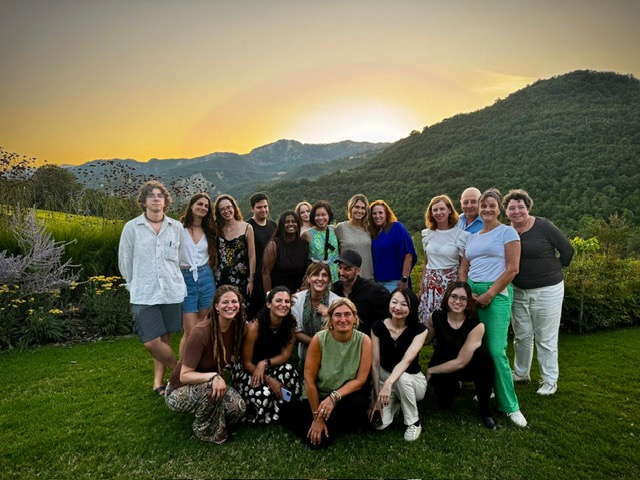
A Call to Conscious Travel
So the next time you find yourself planning a trip through Italy, consider skipping the chain hotel or that mega-winery tour. Instead, look for places that offer something deeper – something sustainable, intentional, true to the land.
Visit a Demeter-certified farm. Sip the wine. Walk the soil. Ask the questions. Leave an ambassador.
You may just come away with more than just a great evening in the Italian countryside. You might also discover a whole new way of thinking about what it means to live, eat, and travel well.

